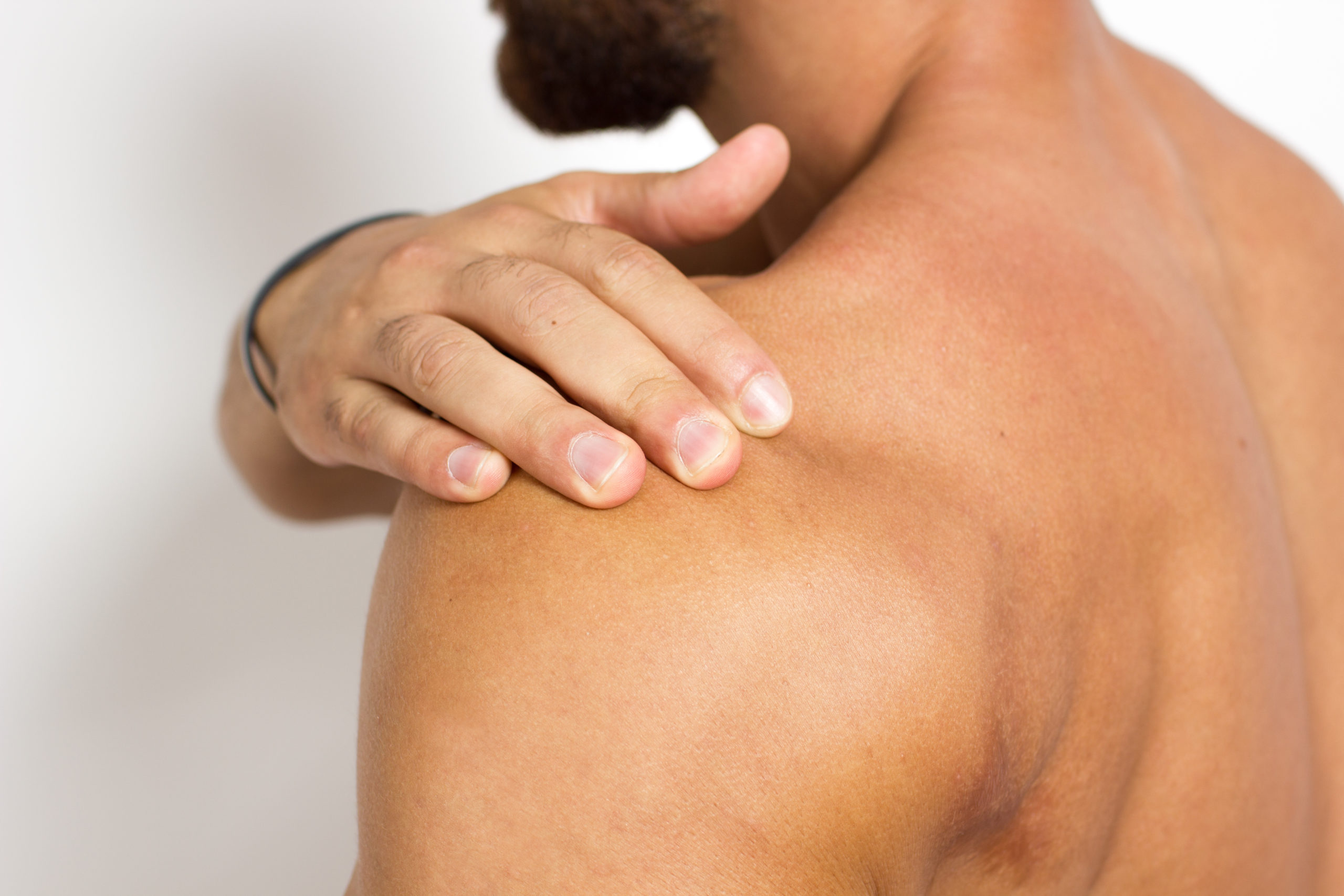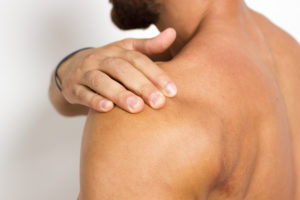
 What is it?
What is it?
The shoulder is a complex region with many interconnected parts and a versatile range of motion, so a shoulder injury can be quite a debilitating issue. The complexity of the region means that locating the injury and source of pain can be difficult, but in general, movement of the shoulder will make the pain worse.
Common shoulder injuries and conditions that can cause shoulder pain
Shoulder injuries that produce shoulder pain are numerous. Some are more common than others but possible causes of pain following this type of injury could be:
Rotator Cuff Injury: The Rotator Cuff is a group of muscles and tendons that provide the shoulder with stability and allow the arm to rotate. Overuse or a heavy blow may cause small tears or strains in the Rotator Cuff, leading to pain and weakness in the shoulder.
Dislocated Shoulder: A dislocated shoulder occurs when considerable force or lack of joint stability allows the Humeral head (Upper arm) to pop out of the socket on the shoulder blade. In younger people this is often caused by a sporting injury in older people it could be just a heavy fall. In both cases the joint has to be reduced (relocated into the socket).
Acomio-clavicular joint injury: Or a separated shoulder is different to a dislocated shoulder as it is when the collar bone (clavicle) becomes separated from the tip of the shoulder blade (acromion). The ligaments between the bones become sprained or torn and treatment depends upon the severity of displacement of the joint.
Broken Arm: A broken Humerus (the upper part of the arm) can cause quite a lot of discomfort in the shoulder and should be kept still until X-rayed.
Sprains and strains: A shoulder sprain is the stretching or tearing of ligaments that hold bones together. A shoulder strain is the stretching or tearing of muscles or tendons.
Tendinitis: Is inflammation of a tendon. It is quite common in the shoulder joint and frequently involves the Supraspinatus tendon which can be damaged with overhead movements of the arm.
Bursitis: Is the inflammation of a bursa which is a small sac of fluid which provides cushioning between moving tissues. Shoulder bursitis can occur from repetitive lifting overhead, throwing or trauma.
Other conditions causing shoulder pain:
Swimmer’s Shoulder: Swimmer’s shoulder is a term used to encompass many injuries of the shoulder common to swimmers. It is usually caused by overuse, poor posture, muscle tightness and weakness. This in turn can lead to many of the problems already mentioned.
Frozen Shoulder: Or Adhesive Capsulitis is the inflammation of the shoulder capsule which causes increasing pain and progressive stiffness in most directions of movement. It can be caused by trauma, stress, surgery and disease and is more common in 35-50 year olds.
Osteoarthritis: OA is caused by the “wear and tear” of joints this can be accelerated by excessive physical use and weight gain. The cartilage in the joint becomes worn and the space between the bones becomes narrowed. OA can lead to joint instability and muscle weakness, often a patient will experience a grinding sensation (crepitus) and pain with movement.
Clinical examinations
For many shoulder injuries, an X-Ray or MRI may be appropriate. Your hand therapist will let you know if this is required.
When should you see a doctor or hand therapist?
Use your best judgement when assessing whether to seek medical assistance or not. With severe pain medical assistance is always recommended.
For example, if you have dislocated your shoulder, your doctor will refer you for X-rays to help determine how to reposition it and whether you can be managed conservatively with immobilisation, or requires surgery in order to ensure a healthy stable joint.
Treatment
Mild shoulder injuries such as strain or sprain can be self-treated. Rest is the key: avoid using your shoulder in way that can cause pain or discomfort. Icing the affected area 15-20 minutes a few times a day can help reduce pain and swelling.
Depending on the severity of the condition therapy may include education, anti-inflammatory modalities, the creation of an appropriate home exercise program, massage and in some cases provision of braces or splints.
Surgical treatment
Surgical treatment may be required in extreme cases of shoulder injury.
Your therapist can discuss this with you and your GP and arrange a referral to a surgeon if required. If you have any questions regarding a shoulder condition you have or to book an appointment at our Dee Why practice, feel free to contact us here. We’d be more than happy to help!
